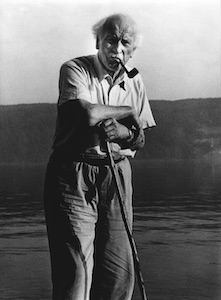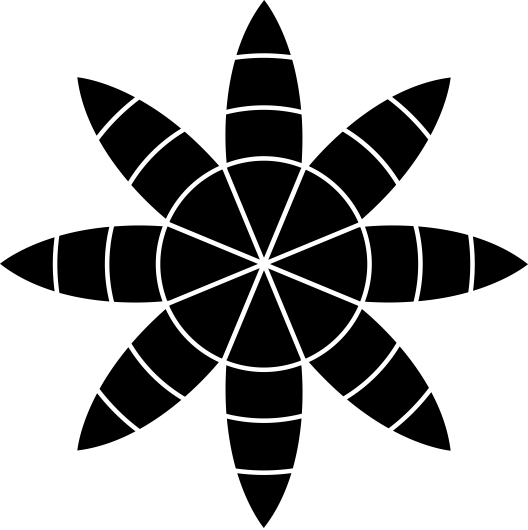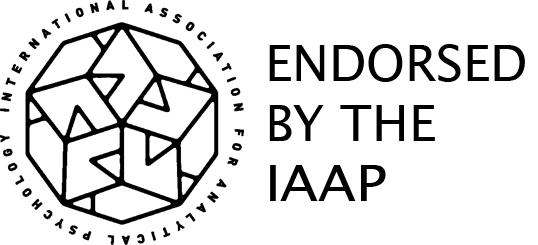
Date
- Jul 20 - 26 2025
Time
UTC-4- 8:00 am - 6:00 pm
Local Time
- Timezone: America/New_York
- Date: Jul 20 - 26 2025
- Time: 8:00 am - 6:00 pm
Cost
- $520.00
Speakers
- Christine Downing
 James Hollis
James HollisDr. James Hollis is a Washington D.C. based Jungian psychoanalyst and the author of seventeen books.
His current project takes him in a bold new direction. It is a documentary film tentatively titled “Soulheal.” James is collaborating with filmmaker José Enrique Pardo and producer Shon Tomlin on this project, which is inspired by his book “Under Saturn’s Shadow.”
- Ashok Bedi
- Erik Goodwyn
- Ann Ulanov
- Tom Singer
Location
Organiser

New York Center for Jungian Studies
Phone
845 256 0191Website
https://jungian.directory/related_organisation/new-york-center-for-jungian-studies/Jung on the Hudson Seminar 2025
We invite you to join us at our 34th annual Jung on the Hudson summer seminar series — a unique opportunity to step back from the challenges of every day life and explore what lies within us. Designed for the general public as well as mental health professionals, during the course of our program, an outstanding faculty of Jungian analysts and authors will help shed light on the relevance of Jung’s psychology and ideas to our personal and/or professional lives as we examine some of the psychology and ideas of Carl Jung.
Our seminars offer the opportunity to stretch ourselves psychologically — an in-home vacation from the demands of everyday life and an opportunity to better balance spirit and matter and find meaning in our lives.
From the start, we have taken great pride in offering meaningful, in-depth content. What began as a small, in person program held in Rhinebeck, New York, thanks to the wonders of technology, the program has become internationally attended with participants last summer joining us from 29 different states and nine countries.
We hope you will join us for what promises to be another thought-provoking and stimulating time with like-minded colleagues from all over the world.
July 20-24, 2025 | Weeklong Live Online Seminar
There is an old adage that the perfect is the enemy of the good, meaning that striving for perfection is striving for the impossible — a sure path to disappointment or even failure. In this regard, one could say that it is grandiose to want to be perfect. This is hubris on a grand scale. In the Hebrew Bible, even God is not perfect, with examples in Genesis ranging from God destroying the world and starting over again — as in the legend of Noah — to regretting that mankind spoke one common language as evidenced in the myth of the Tower of Babel. In any case, perfection is always relative. For most of us, when is something being “good enough” is a better question to ask of ourselves than why am I not perfect?
There are multiple dangers in the focus on perfection. Setting unrealistic goals and striving to be perfect is a surefire strategy to foster guilt, shame, self-hatred and a sense of personal inadequacy, which can lead to addiction among other maladaptive issues. We may see this manifested as an eating disorder, excessive exercise, or compulsive shopping, gambling, drinking, smoking, and even internet use. Additionally, striving for perfection can block creativity and warp our imagination. It blunts compassion by first inducing self-hatred when we cannot meet our own aims and then turns outward to become callousness toward others. It is important to understand that striving for perfection is also a form of wanting to control our lives, our environment, and those around us. To accept our imperfection means we are human and therefore accept that there is a certain amount of uncertainty in life.
According to Jung, perfection is not considered a desirable goal as it can hinder the true aim of achieving wholeness, which embraces both positive and negative aspects of the self. In striving for perfection, we split off the shadow, fostering either optimism or inferiority and inadequacy. As Jung pointed out, “perfection belongs to the Gods; the best we can hope for is excellence.” He emphasizes that life calls on us to strive for wholeness, not perfection.
These are questions we must grapple with on our path to what Jung calls Individuation. It is a tricky path to walk, and we must all find our way in order to achieve the balance necessary to achieve this wholeness. We hope you will join us to explore these ideas with leading analysts and authors as you find your footing on this path of individuation.
Presentations
Sunday Evening, July 20 | 6:00–8:00 p.m. | James Hollis
Putting God on the Couch
In this keynote presentation, participants will examine the “imperfection” not of Divinity — which by definition is so wholly other as to defy understanding and description — but our efforts to approach the recondite mysteries in which we swim. James Hollis will examine how images of Divinity reveal more of their human authorship than the mystery itself. The deeper implication of this presentation is to remind each of us, no matter what intentions we bring, how imperfect our images and practices of relating to the other are. This recognition also obliges us to bring more modesty to our descriptions and expectations, and to factor in the psychological processes that operate within all of us.
Monday, July 21 | 12:00 – 1:30 pm & 2:15 – 3:45 p.m. | Morgan Stebbins
The Archetypal Urge for Perfection – And What to do About It
Jung indicates that perfection is not the goal of individuation. If so, then why do many of us suffer under the weight of trying to become some ideal version of ourselves? It is because the underlying archetype of our ‘age’ is that of sinless, spotless, perfection. This shows up in everything from the desire for fame to the fascination with news, from social media to politics. It shows up also as shame and guilt. In this presentation, Morgan Stebbins will offer a brief overview of how Jung traces the 2,000-year history of this archetype. Participants will discuss its current manifestations in our lives and society, as well as Jung’s understanding of the difficult and paradoxical psychological solution.
Tuesday, July 22 | 12:00 – 1:30 pm & 2:15 – 3:45 p.m. | Ann Belford Ulanov
If We Wait for It to Be Perfect There Will Be Nothing Left
Perfection lures us with the unsurpassable beauty of many things in this finite life. It extends even to the infinite with God-images of everything we idealize as absolute. We seek to concretize this awesome experience to preserve it and we strive to identify with its faultless nature. That identification makes it dead. We cannot measure up to the perfect standard. Self-rejection ensues and censorious judgment of others prevails. Healing means process and aliveness in us and in our guiding images. In this presentation, participants will explore destructiveness and creativeness with wholeness, not perfection as the goal.
Wednesday, July 23 | 12:00 – 1:30 pm & 2:15 – 3:45 p.m. | Dennis Patrick Slattery
The Myth of Narcissus and Echo: Irony’s Resistance to Perfection
The power of myths shares the same essential nature as poetry, literature and the arts — knowledge by way of analogy. The myth of Narcissus and Echo, rendered so profoundly by Ovid in Metamorphosis, opens a path to understanding something essential about perfection and imperfection. In this presentation, Dennis Slattery will explore the essential need for irony in our lives to counter the fixity that Narcissus is arrested by after he spurns her presence. Using some of C.G. Jung’s insights that address the psyche’s journey of individuation, participants will explore the pitfalls of fixity vs. the openness of a life of fluidity.
Thursday, July 24 | 12:00 – 1:30 pm & 2:15 – 3:45 p.m. | Tina Stromsted
From the Drought of Perfection to the Wellspring of Being: Reclaiming the Juicy Side of Life
Noted Jungian analyst Marion Woodman described her journey through anorexia as an “addiction to perfection.” Through recovery, she discovered the joy of embodied consciousness, realizing, “To love the juicy side of life [is] being a human being who loves being in the body.” In this presentation, participants will reflect on how perfectionism manifests — through eating disorders, body image fixation, overwork, substance & internet misuse, and more — offering a path back to their authentic selves. Through engaging embodied Active Imagination and dreams, participants will explore moving beyond arid perfectionism to rediscover untapped potential, reclaiming vitality, creativity, and a deeper connection with their humanity.
The Importance of Synchronicity in Life, in Therapy, and in Our Postmodern Age
Friday, July 25 | 6:00 – 8:00 p.m. and Saturday, July 26 | 12:00 – 1:30pm & 2:15 – 3:45p.m.
Perhaps more than any of Jung’s most influential ideas, the concept of synchronicity has been widely embraced by our popular culture and entered into its common experience and vocabulary. A prominent scholar and professor of religious studies recently said, “I have stopped believing in most things, but I do believe in synchronicity.” Even in the pages of the Scientific American, the publisher of Skeptic magazine shared a powerful synchronicity he and his wife experienced during their wedding that shook his “skepticism to the core.”
In this workshop, participants can deepen their awareness of the varieties of synchronistic experience. Synchronicities are both gifts and challenges. They can be felt as acts of grace or the subtle patternings of a cosmic artist, yet they can also suggest an elusive trickster who demands careful discernment both outer and inner. There seem to be stages that individuals go through in their deepening recognition of the synchronistic dimension of life. Synchronicities can compensate for the one-sidedness of egoic consciousness, and move the individual psyche toward wholeness. They also have, like all things, a shadow side, lending themselves to egocentric inflation or literalist interpretations. But most profoundly, they can give us intimations of the numinous and glimpses into the complex artistry of life. In our postmodern age when all the old metanarratives and spiritual frameworks are contested, awareness of synchronicities has become for many alert individuals a crucial source of psychological orientation and spiritual nourishment.
-
00
days
-
00
hours
-
00
minutes
-
00
seconds
Related Events



